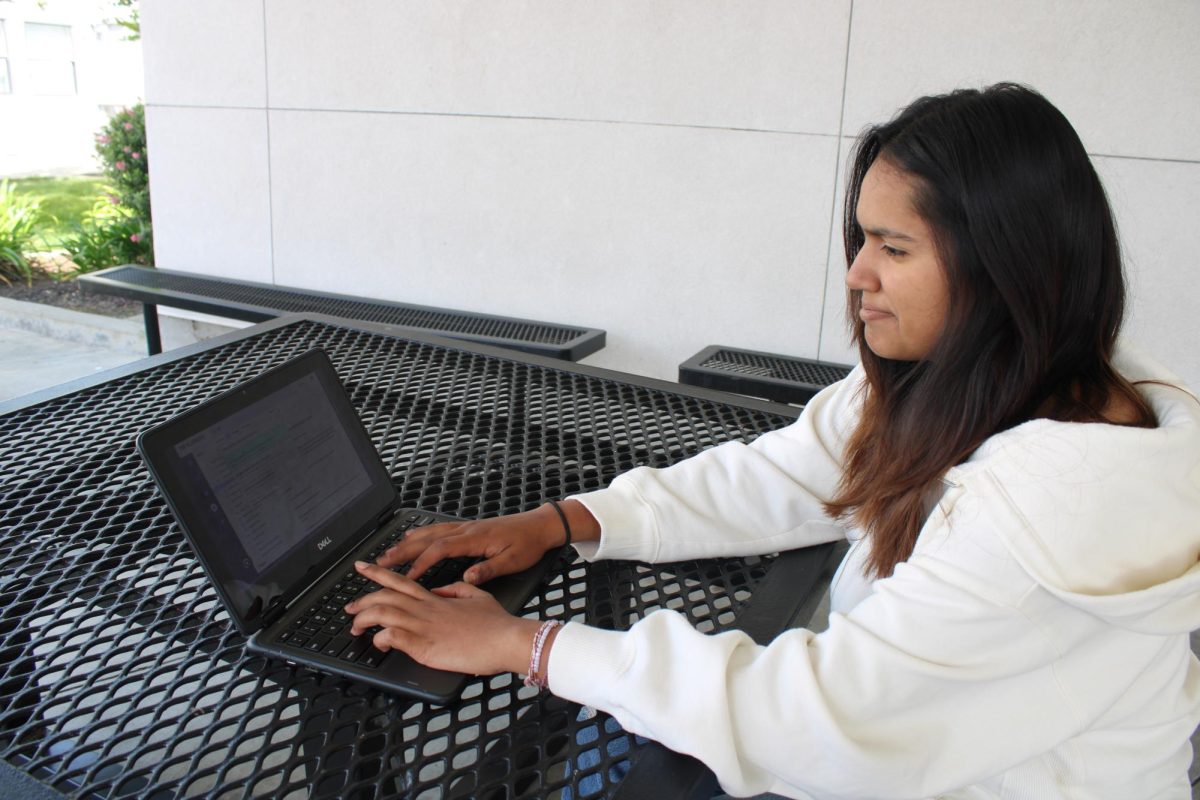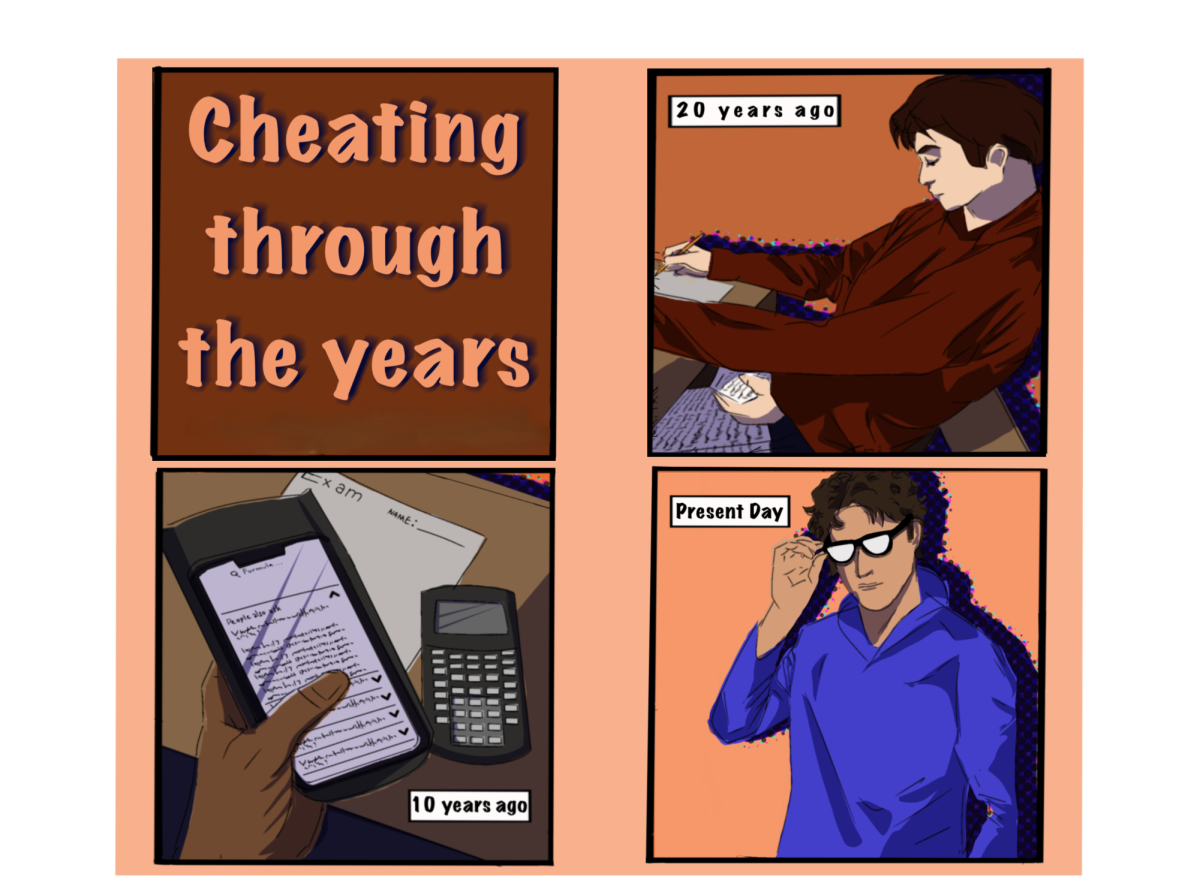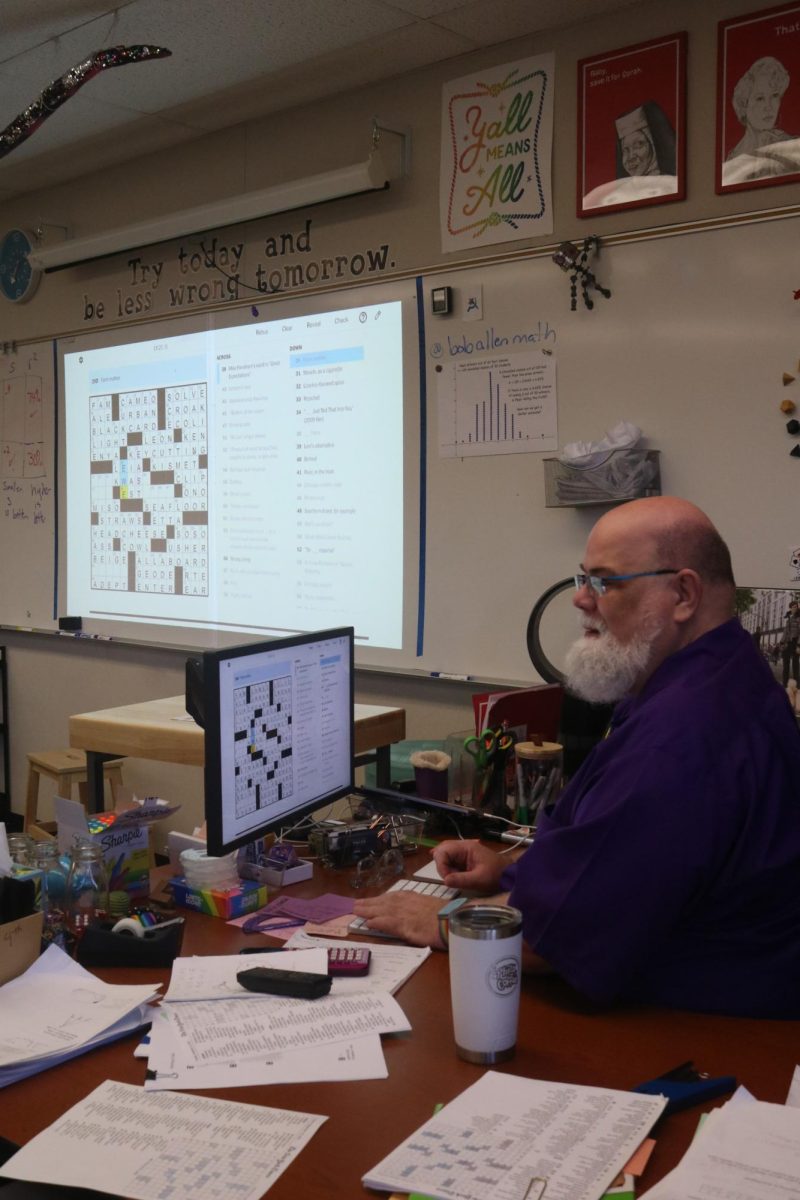College Board is notorious for making high school students miserable, depriving them of money, sleep, and willpower.
Their new method of creating unnecessary complications is digitizing AP exams.
Last year, Cal High administered the AP Language, AP US History, AP Literature, AP Computer Science Principles, AP Spanish, and AP French exams through the Bluebook testing app.
Now, College Board calls digital testing the future of APs, steadily planning to increase the number of digital exams offered. The non-profit organization claims digital tests remove the waste of paper booklets and increase test security.
But the first year of digital AP exams was one surrounded with delays, inconveniences and the fear of a dying Chromebook.
Last year’s AP Computer Science Principles exam was scheduled to start at noon but started 45 minutes later. Because of connectivity issues, getting the test up and running proved to be a challenge. The delay may not seem significant, but the excessive waiting time increased anxiety and stress for students, which could have effected their performance.
Digital testing wreaked the most havoc with last year’s AP Literature fiasco. The exam was supposed to take place on May 3, but it was administered two weeks late because the testing portal crashed. Such a delay is disastrous. Most students break down their studying by week and as exam day approaches they have a specific plan per day. Students’ plans are carefully designed so when test day comes, they are ready.
A delay of two weeks means that students, who were looking forward to having their AP exams completed, had another two weeks of preparation.
Such cases only highlight the biggest problems with digitizing AP exams. But that isn’t all.
A Chromebook could die during an exam, potentially causing work to be lost. Plus, staring at a screen for hours often causes headaches for students.
Last year, APUSH was another exam administered digitally. Exams such as these may seem ideal to make digital as it reduces the amount of handwriting required, but taking the exam on an electronic device also causes difficulties. Annotating sources for the document based questions is a challenge, especially as students can’t take notes in margins or jot down symbols.
Another factor to consider is while lockdown browsers are utilized to prevent opening other tabs, digital AP tests could increase the potential of cheating. Students could easily glance at another’s screen since they are seated close to each other.
This would be harder to do on paper exams, as papers are easily covered by a hand and generally more difficult to read.
Digitizing AP exams comes with many shortcomings and complicated an already stressful process.
Should Cal administer digital AP exams? – NO
Shelly Parekh, Online Editor
May 7, 2024
Sophomore Abbey Arteaga opens the Bluebook app, which is used for all digital AP exams.
Story continues below advertisement
More to Discover
About the Contributors

Shelly Parekh, Online Editor
Senior Shelly Parekh is back for her second year with The Californian, this time as both one of the Online and Podcast editors. She’s looking forward to another great year of publishing stories as well as fawning over the greatest Editor-in-Chief ever, Ylin Zhu. When she isn’t busy fangirling, she loves to swim on both a club and Cal’s team, read murder mysteries, and listen to 2000’s music. If she’s not doing any of that, she’s probably sound asleep.

Olivia Soares, Photo Editor
Olivia is a junior at Cal High and loves taking photos. She also loves playing sports like soccer and basketball and hanging out with friends and family. Some of her favorite things to do in her free time are listen to music and watch tv shows like How I Met Your Mother and The Office. She has also traveled to a lot of places such as Portugal, New York, and Hawaii. She loves being part of newspaper and she is very excited to be the photo editor for The Californian this year.


